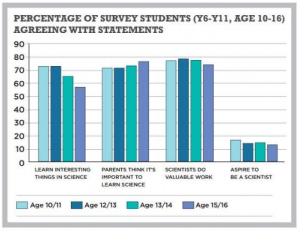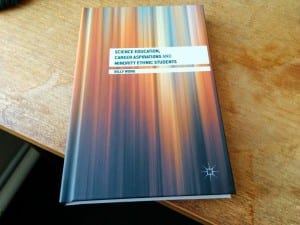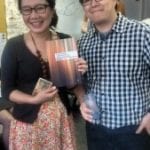Science Capital Conference: Book your tickets now
By qtnvacl, on 20 September 2017

The Science Capital research team at the UCL Institute of Education (IOE) will introduce the ‘Science Capital Teaching Approach’ at the Enterprising Science Teacher Conference in York on Friday 13 October 2017.
The conference is aimed at science teachers and educators who are keen to make their lessons more inclusive and engage more students with science. The Science Capital Teaching Approach is designed to support inclusion, building on students’ own personal interests and diverse experience.
To find out more and book your place click here.
 Close
Close







